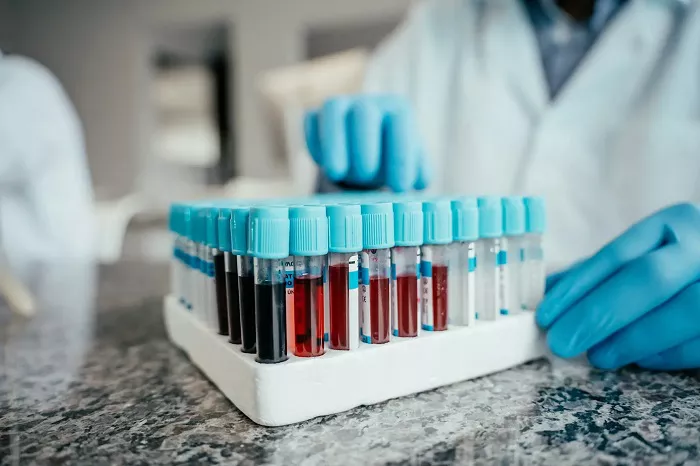A new blood test could speed up the diagnosis of rare genetic diseases in babies and children. The method was presented at the European Society of Human Genetics’ annual conference.
Rare diseases affect around 300 million people worldwide. Although individually uncommon, over 7,000 rare diseases are linked to mutations in more than 5,000 genes.
Half of rare disease cases remain undiagnosed. Existing tests are slow, focus on one disease at a time, and often lack accuracy, leading to long delays and stress for families.
Dr. Daniella Hock from the University of Melbourne developed a fast test that studies thousands of proteins in one small blood sample.
Unlike genetic tests that focus on DNA, this test analyzes proteins. It shows how gene changes affect protein function and cause disease, helping to detect known and new conditions.
Only 1 milliliter of blood is needed. Results can be ready in less than three days, making it suitable for emergency care in infants.
The test also works well when done on both the child and their parents—a process called trio analysis—especially for identifying inherited diseases.
This approach helps doctors tell the difference between carriers and those actually affected. It increases confidence in diagnosis and reduces unnecessary testing.
Faster diagnosis can lead to quicker treatment, if available. It also spares children from painful tests and gives families clearer answers sooner.
With a diagnosis, families can explore options like genetic counseling and testing in future pregnancies to avoid passing on the disease.
Healthcare systems could also benefit. Using one broad test instead of many smaller ones could reduce costs and improve care efficiency.
A recent study showed the test costs about the same as current mitochondrial disease tests but can diagnose many more conditions.
The test identifies over 8,000 proteins from blood cells. It covers more than half of all genes known to cause inherited or mitochondrial diseases.
It also helps scientists find new disease-causing genes, offering more answers for previously unsolved cases.
Dr. Hock says the test’s speed, small blood volume, and strong results have already helped many families.
She believes this tool will soon become part of routine genetic testing in hospitals and labs worldwide.
Conference Chair Professor Alexandre Reymond said such non-invasive testing will make rare disease diagnosis faster and more effective.
This new method offers hope to families, ending long waits and helping doctors treat children sooner with more confidence.


